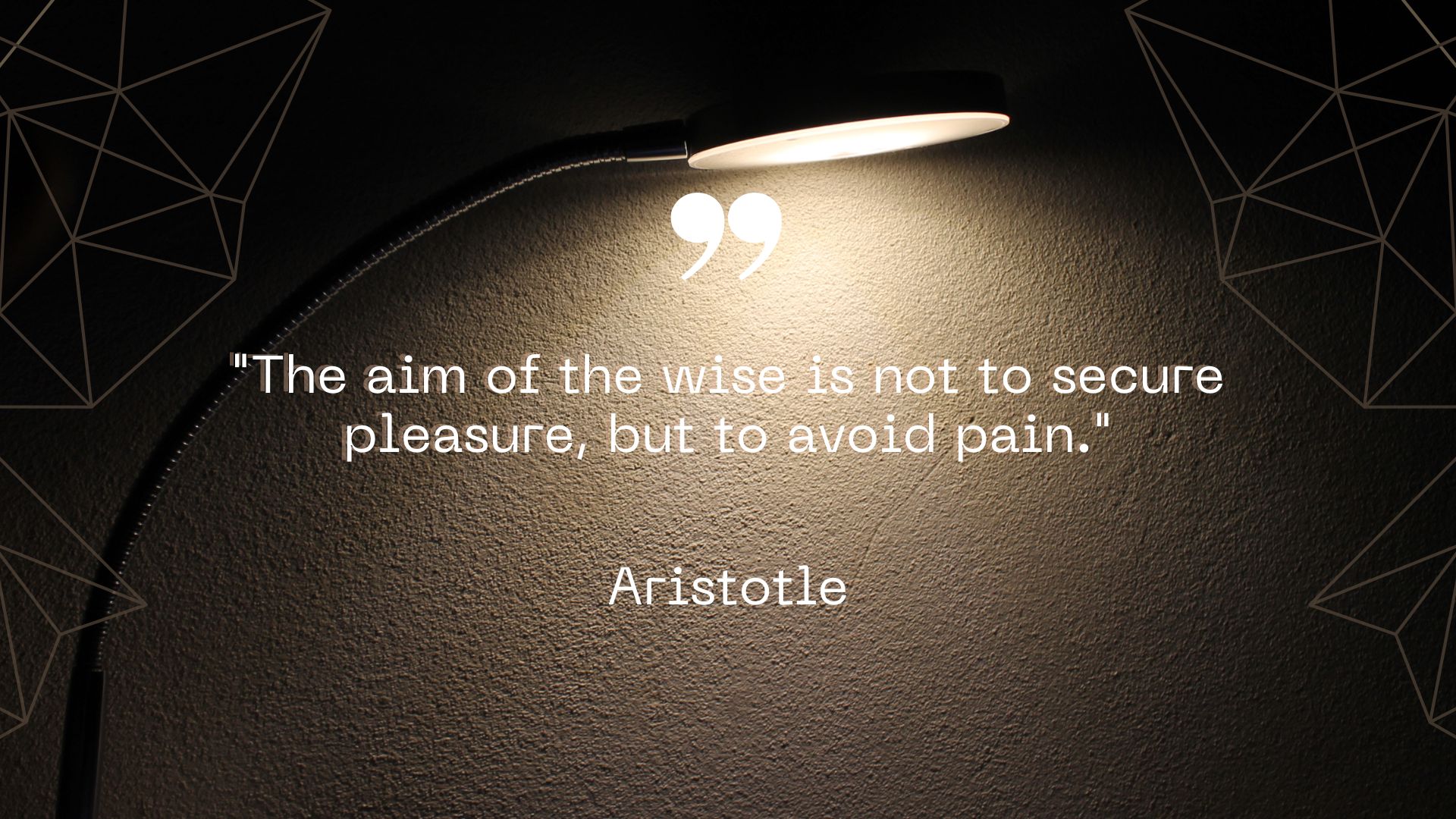“The aim of the wise is not to secure pleasure, but to avoid pain.”
Aristotle–
Aristotle, one of the most influential philosophers in history, provides us with profound insights into human behavior and the pursuit of a meaningful life. Among his many philosophical observations, the quote “The aim of the wise is not to secure pleasure, but to avoid pain” stands as a timeless reflection on the motivations that drive human actions and choices.
The Wisdom Paradigm: A Shift from Hedonism to Prudence Aristotle’s quote challenges the prevailing notion of seeking immediate pleasure as the ultimate goal. Instead, he introduces the concept of wisdom as a guiding principle, implying a shift from a hedonistic approach to life to a more nuanced and deliberate pursuit.
The Nature of Pleasure and Pain: Eudaimonia and Aversion Aristotle’s quote delves into the contrasting dynamics of pleasure and pain. He suggests that wisdom involves recognizing the transient and often deceptive nature of pleasure and, conversely, the inevitable presence of pain in human existence. By understanding these forces, individuals can aspire to a higher state of well-being, known as eudaimonia, which encompasses more profound and lasting fulfillment.
The Rational Calculation: Pragmatic Decision-Making Inherent in Aristotle’s assertion is the idea that wisdom entails rational decision-making. The pursuit of pleasure alone might lead to impulsive and short-lived gratification. In contrast, the pursuit of pain avoidance necessitates a thoughtful consideration of consequences and a calculated approach to life’s challenges.
Beyond Immediate Gratification: Long-Term Happiness The quote underscores the pursuit of long-term happiness and well-being rather than fleeting pleasures. Aristotle suggests that genuine wisdom involves looking beyond momentary satisfaction and focusing on actions that contribute to sustained contentment and personal growth.
The Virtuous Path: Cultivating Resilience and Moral Character Avoiding pain, in Aristotle’s view, also involves cultivating resilience and developing a virtuous character. The wise recognize that challenges and setbacks are inevitable, and by confronting them, they build emotional strength and moral fortitude.
Conclusion: Aristotle’s insight encapsulated in the quote “The aim of the wise is not to secure pleasure, but to avoid pain” encapsulates a profound philosophy of life. It calls for a thoughtful and deliberate approach to decision-making, emphasizing the pursuit of wisdom, prudence, and enduring well-being over the pursuit of transient pleasures. By embracing this perspective, individuals can navigate the complexities of life with resilience, moral integrity, and a deeper sense of fulfillment.




